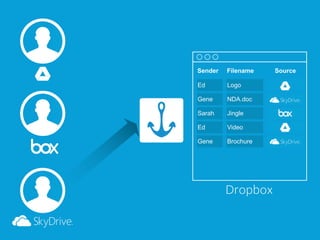LinkDaddy Universal Cloud Storage: Unmatched Safety And Security for Your Information
LinkDaddy Universal Cloud Storage: Unmatched Safety And Security for Your Information
Blog Article
Exploring the Function of Universal Cloud Storage Solutions in Information Protection and Conformity
In today's electronic landscape, the use of global cloud storage space solutions has become paramount in addressing information security and compliance needs for organizations across numerous markets. As companies progressively depend on cloud storage solutions to take care of and safeguard their data, checking out the intricate function these solutions play in making certain data security and conference governing requirements is vital. From mitigating dangers to boosting data ease of access, cloud storage solutions use a complex method to securing sensitive info. Nonetheless, the evolving nature of cyber risks and regulative structures offers a vibrant obstacle that companies should browse efficiently to maintain their information protection and compliance requireds. By diving right into the nuances of universal cloud storage solutions, a clearer understanding of their influence on data safety and security and regulatory compliance emerges, clarifying the complexities and chances that exist in advance.
Value of Cloud Storage Space Provider
Cloud storage solutions play a critical duty in contemporary information management strategies due to their scalability, accessibility, and cost-effectiveness. Scalability is an essential advantage of cloud storage space, enabling organizations to quickly readjust their storage space ability as information needs fluctuate.
Availability is an additional critical aspect of cloud storage space solutions. By saving information in the cloud, individuals can access their info from anywhere with an internet link, assisting in partnership and remote work. This availability advertises functional efficiency and makes it possible for seamless sharing of information across teams and places.
Moreover, the cost-effectiveness of cloud storage services can not be underrated. By leveraging cloud storage space, organizations can reduce costs related to buying and maintaining physical servers. universal cloud storage. In addition, several cloud storage providers offer pay-as-you-go pricing designs, permitting organizations to pay only for the storage space capability they utilize. On the whole, the value of cloud storage space services hinges on their capacity to simplify information administration processes, enhance accessibility, and reduced functional expenses.
Data Defense Methods With Cloud
By encrypting data before it is published to the cloud and keeping control over the encryption keys, organizations can stop unapproved gain access to and alleviate the threat of data breaches. Multi-factor verification, solid password policies, and routine access evaluations are some methods that can enhance data protection in cloud storage services.
On a regular basis supporting information is an additional essential element of data protection in the cloud. By developing backups stored in different places, companies can ensure data availability and durability in instance of unanticipated events such as cyber-attacks, equipment failings, or all-natural catastrophes. Additionally, conducting routine safety audits and evaluations can help identify susceptabilities and make certain conformity with data defense regulations. By combining encryption, accessibility controls, backups, and regular safety evaluations, organizations can establish a robust information security strategy in cloud settings.
Conformity Considerations in Cloud Storage Space
Given the vital nature of data defense strategies in cloud environments, companies need to view it also prioritize conformity factors to consider when it comes to keeping data in the cloud. When using cloud storage services, services need to guarantee that the supplier complies with industry-specific standards such as GDPR, HIPAA, or PCI DSS, depending on the kind of information being stored.

Difficulties and Solutions in Cloud Protection
Ensuring durable security procedures in cloud environments offers a multifaceted challenge for companies today. One of the main difficulties in cloud safety is information breaches. Malicious actors continuously target cloud systems to acquire unauthorized access to delicate info. To mitigate this threat, companies need to apply solid encryption methods, accessibility controls, and routine safety and security audits. One more difficulty is the shared responsibility version in cloud computing, where both the cloud company and the client are accountable for different facets of safety. This can lead to confusion and voids in security insurance coverage otherwise plainly defined. Organizations must plainly describe duties and obligations to guarantee useful reference extensive protection procedures are in location.

Future Trends in Cloud Data Protection
The developing landscape of cloud data security is marked by a growing emphasis on Click Here proactive defense strategies and adaptive security measures (universal cloud storage). As technology developments and cyber dangers end up being extra sophisticated, companies are increasingly focusing on anticipating analytics, expert system, and machine learning to improve their information security abilities in the cloud
One of the future fads in cloud information security is the assimilation of automation and orchestration devices to improve safety and security procedures and response procedures. By automating routine jobs such as danger detection, occurrence feedback, and patch management, companies can improve their overall security pose and better secure their data in the cloud.
Furthermore, the fostering of a zero-trust safety and security version is gaining grip in the world of cloud data security. This approach assumes that dangers could be both outside and inner, requiring constant verification and authorization for all individuals and tools accessing the cloud environment. By carrying out a zero-trust structure, organizations can decrease the risk of data violations and unapproved accessibility to sensitive information stored in the cloud.
Conclusion

Report this page